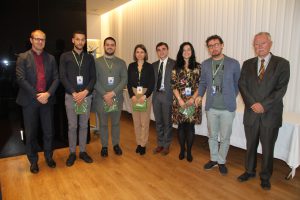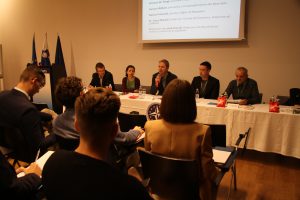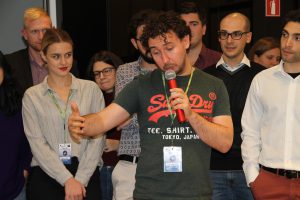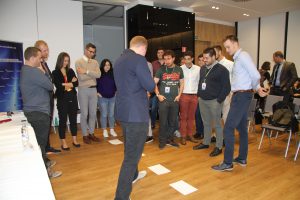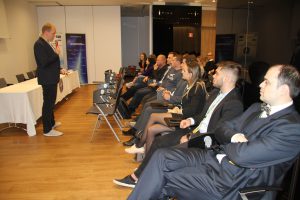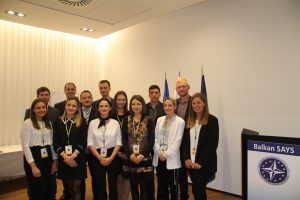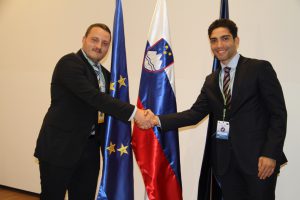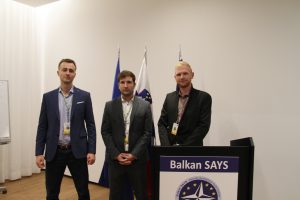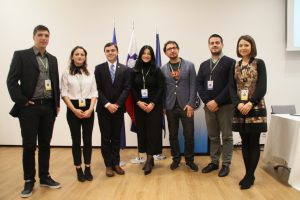 Balkan SAYS – Security Architecture Youth Seminar is an international youth security conference organized annually by the Youth Section of the Euro-Atlantic Council of Slovenia. It aims to foster confidence-building, reconciliation, security, stability, and regional cooperation in the Western Balkans and the broader Euro-Atlantic area by addressing the most pressing international security challenges. Through lectures, workshops, networking, and open dialogue, the seminar brings together young professionals and experts in the field of international security.
Balkan SAYS – Security Architecture Youth Seminar is an international youth security conference organized annually by the Youth Section of the Euro-Atlantic Council of Slovenia. It aims to foster confidence-building, reconciliation, security, stability, and regional cooperation in the Western Balkans and the broader Euro-Atlantic area by addressing the most pressing international security challenges. Through lectures, workshops, networking, and open dialogue, the seminar brings together young professionals and experts in the field of international security.
Established in 2013, Balkan SAYS builds on over a decade of experience. It offers a diverse and engaging programme that provides participants with a dynamic perspective on key political, security, and societal challenges facing the Western Balkans. At the same time, it promotes Euro-Atlantic values and supports a forward-looking vision for the region.
Throughout a dynamic three-day programme, participants engage in roundtable discussions, interactive workshops, and expert-led debates featuring prominent domestic and international specialists, institutional representatives, and civil society actors. The seminar serves as a platform for knowledge exchange, regional dialogue, and the development of forward-thinking policy recommendations. It also provides an excellent opportunity to build a strong international network of young professionals.
Balkan SAYS strives to bring together a broad range of perspectives, bridge divides, and foster new professional connections—empowering young leaders with the networks and insights they need for their future careers.
Balkan SAYS 2025
From 11 to 13 September 2025, the Euro-Atlantic Council of Slovenia (EACS) successfully hosted the 13th edition of Balkan SAYS – Security Architecture Youth Seminar in Ljubljana.

This year’s edition brought together 50 young experts, diplomats, and researchers from 22 countries across the Euro-Atlantic area, fostering open dialogue on some of the most pressing security challenges of our time. Over three days, participants engaged in five thematic panels, interactive workshops, a keynote lecture, and networking activities — all designed to encourage critical thinking, build mutual understanding, and strengthen cooperation among future security leaders.
The seminar opened with welcoming remarks by Dr. Iztok Prezelj, President of the Euro-Atlantic Council of Slovenia (ATA), followed by Matic Kosirnik, President of the Youth Section of the Euro-Atlantic Council of Slovenia (YATA). The formal opening address was delivered by the Minister of Defense of the Republic of Slovenia, Mr. Borut Sajovic, who underscored Slovenia’s strong commitment to youth engagement and international security cooperation.
Participants were further inspired by a keynote speech by Mr. Borut Pahor, the former President of the Republic of Slovenia, who reflected on the evolving security environment and emphasized the importance of strategic leadership and a geostrategic approach to stability in the Euro-Atlantic area and the Western Balkans.
At the heart of Balkan SAYS 2025 were five in-depth panel discussions that examined some of the most urgent and complex security challenges confronting the Euro-Atlantic area today.
 The seminar opened with a panel on defending NATO values and Europe’s role in upholding freedom, human rights, democracy, and the rule of law, which set a strategic tone for the days ahead. Speakers underlined that while NATO was founded on shared principles, values alone cannot guarantee peace or stability unless they are underpinned by credible capabilities. The discussion focused on Europe’s responsibility to assume a greater share of the burden within NATO and to transform political commitments into concrete contributions. Participants explored how NATO’s 2025 capability targets will reshape European defense planning and force structures over the coming decade, and debated how the European Union can meaningfully support this effort through enhanced capability development, coordinated procurement, stronger NATO–EU alignment, and the long-term resilience of Europe’s defense industrial base. The panel made clear that ensuring Europe’s long-term security and credibility will require not only higher investments but also profound political, military, and industrial changes.
The seminar opened with a panel on defending NATO values and Europe’s role in upholding freedom, human rights, democracy, and the rule of law, which set a strategic tone for the days ahead. Speakers underlined that while NATO was founded on shared principles, values alone cannot guarantee peace or stability unless they are underpinned by credible capabilities. The discussion focused on Europe’s responsibility to assume a greater share of the burden within NATO and to transform political commitments into concrete contributions. Participants explored how NATO’s 2025 capability targets will reshape European defense planning and force structures over the coming decade, and debated how the European Union can meaningfully support this effort through enhanced capability development, coordinated procurement, stronger NATO–EU alignment, and the long-term resilience of Europe’s defense industrial base. The panel made clear that ensuring Europe’s long-term security and credibility will require not only higher investments but also profound political, military, and industrial changes.
The second panel turned to frozen conflicts in the Western Balkans, examining how unresolved disputes continue to hinder regional stability and Euro-Atlantic integration. Speakers noted that legacies of the past—ranging from contested statehood and ethnic divisions to unsettled border issues—still shape political dynamics across the region, leaving space for external actors to exert influence. The debate emphasized that while these conflicts were not created by the current generation, they will not be resolved without its active involvement. Bottom-up initiatives, reconciliation efforts, and confidence-building measures were highlighted as essential tools to rebuild trust, strengthen regional cooperation, and re-energize the European and Euro-Atlantic integration process in the Western Balkans.
The third panel addressed gender and inclusion in security, stressing that representation is not a symbolic gesture but a core component of legitimacy, credibility, and operational effectiveness in defense and security institutions. Speakers underlined that inclusive structures enhance decision-making, reflect the societies they serve, and strengthen resilience in times of crisis. The discussion called for the full and equal integration of women across all levels of security policy and defense planning, arguing that diversity must be seen not as an optional ideal but as a strategic capability in itself.
 Building on this, the fourth panel examined the challenge of disinformation and media resilience in the Western Balkans, a region targeted by coordinated foreign and domestic influence campaigns. Participants discussed how disinformation erodes trust in institutions, fuels polarization, and undermines democratic processes. The debate focused on the need to strengthen independent media, protect freedom of expression, and promote critical media literacy, particularly among youth, as vital components of national and regional security. Strengthening societal resilience, it was concluded, is as important as developing military capabilities.
Building on this, the fourth panel examined the challenge of disinformation and media resilience in the Western Balkans, a region targeted by coordinated foreign and domestic influence campaigns. Participants discussed how disinformation erodes trust in institutions, fuels polarization, and undermines democratic processes. The debate focused on the need to strengthen independent media, protect freedom of expression, and promote critical media literacy, particularly among youth, as vital components of national and regional security. Strengthening societal resilience, it was concluded, is as important as developing military capabilities.
The final panel looked beyond the immediate neighborhood to explore cooperative security in NATO’s Southern flank, an area encompassing North Africa, the Middle East, and the Sahel. Speakers highlighted how instability in this region—driven by terrorism, protracted conflicts, migration pressures, and geopolitical competition—poses significant security risks to the Euro-Atlantic area. They stressed that NATO cannot afford to neglect the South while focusing primarily on its eastern flank, and called for a more coherent, coordinated, and responsible approach to addressing southern security challenges. This would require sustained political attention, closer cooperation with regional partners, and a clearer balance between deterrence, defense, and crisis prevention.
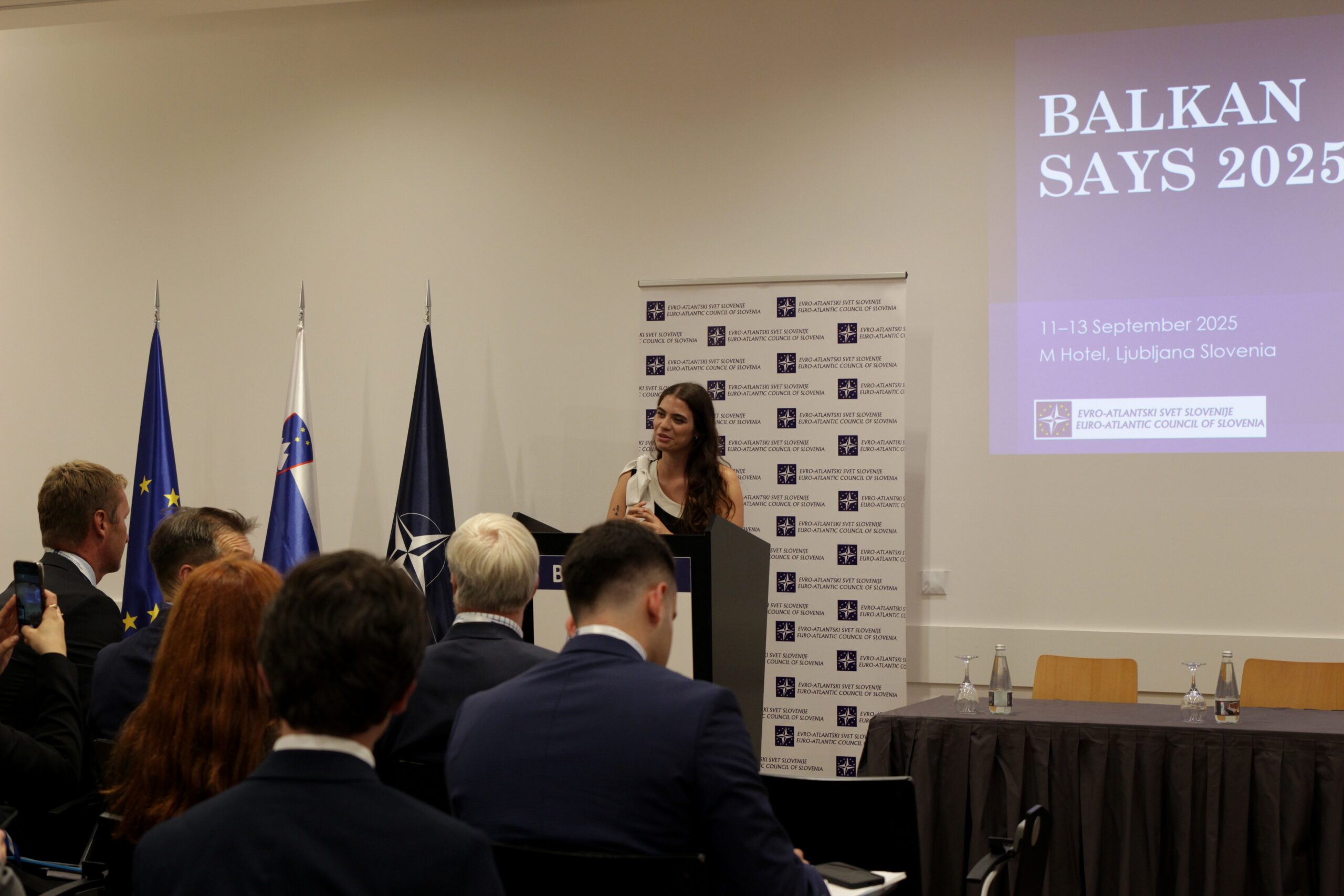 Together, these five panels illustrated how today’s security environment is deeply interconnected and rapidly evolving—and how addressing it requires new thinking, stronger cooperation, and the active engagement of the next generation of security professionals.
Together, these five panels illustrated how today’s security environment is deeply interconnected and rapidly evolving—and how addressing it requires new thinking, stronger cooperation, and the active engagement of the next generation of security professionals.
Balkan SAYS once again demonstrated the essential role of youth in international security policy. Through in-depth debates, collaborative workshops, and informal exchanges, participants brought fresh perspectives, critical questions, and innovative ideas to complex strategic challenges. The seminar was designed and implemented by the Youth Section of the Euro-Atlantic Council of Slovenia. The organizing team of 17 members conceptualized the panels, shaped their content, and moderated the discussions, making this year’s seminar a truly youth-led initiative.
The Euro-Atlantic Council of Slovenia extends its sincere thanks to the Ministry of Defense of the Republic of Slovenia for its invaluable and long-standing support, and to all speakers, moderators, and participants who contributed to the success of this year’s edition.
We look forward to continuing this tradition of fostering dialogue, cooperation, and leadership — and to welcoming a new generation of young security professionals to Balkan SAYS 2026.





















Balkan SAYS 2024
From 12 to 14 September 2024, the Euro-Atlantic Council of Slovenia hosted the 12th edition of the Balkan SAYS – Security Architecture Youth Seminar, organized by members of the Youth Section of the Council. The seminar brought together 29 participants from 17 countries and featured 20 distinguished speakers.
The first day focused on expert reflections from various countries marking the 75th anniversary of NATO’s founding. The second day featured three thematic panels addressing:
-
- building resilience against foreign information manipulation in the West,
- the impact of organized crime in the Western Balkans, and
- the revival of EU enlargement policy.
The final day concluded with a panel on global partnerships and strategic competition, followed by an insightful lecture on the role of Artificial Intelligence in the fields of security, defence, and intelligence.
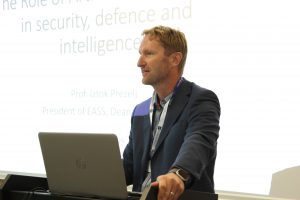
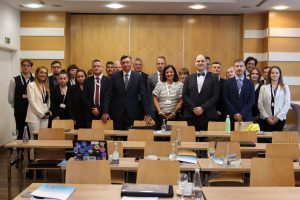
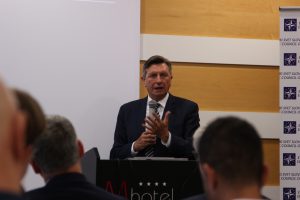
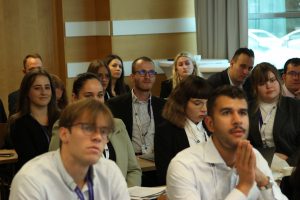
Balkan SAYS 2023
From 14 to 16 September 2023, the Euro-Atlantic Council of Slovenia hosted the 11th edition of the Balkan SAYS – Security Architecture Youth Seminar, organized by members of the Youth Section of the Council. The seminar brought together 32 participants from 13 countries and featured 17 distinguished speakers.
The first day focused on expert discussions on NATO enlargement. The second day featured panels addressing contemporary security issues in the Western Balkans, the war in Ukraine, and international partnerships for the 21st century. The final day concluded with a panel on emerging technologies and critical infrastructure.
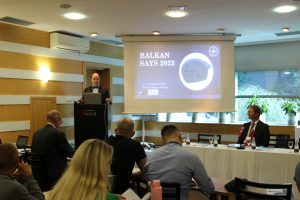
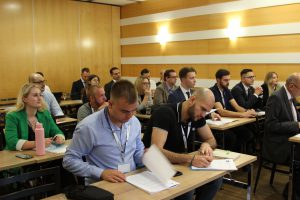
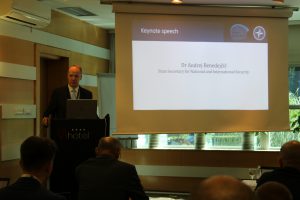
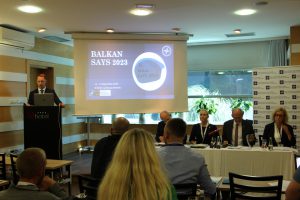
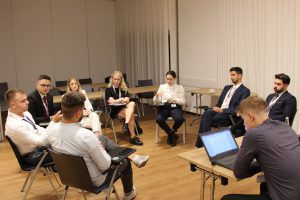
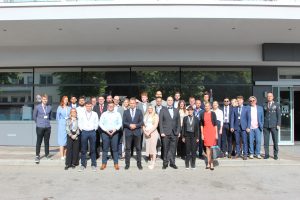
Balkan SAYS 2022
From 15 to 17 September 2022, the Euro-Atlantic Council of Slovenia hosted the 10th edition of the Balkan SAYS – Security Architecture Youth Seminar, organized by members of the EASS Youth Section. The seminar brought together 23 participants from 11 countries.
On the first day, experts from various countries discussed NATO’s new Strategic Concept and the impact of new and emerging technologies on European security over the next decade. The second day was dedicated to discussions on the integration of Western Balkan countries into the Euro-Atlantic area, the ambivalent role of (dis)information, great power competition in Europe, and future security prospects for the Western Balkans.
The final day concluded with a lecture by Dr. Anton Bebler, Honorary President of the Euro-Atlantic Council of Slovenia, on frozen conflicts in Europe as security challenges.
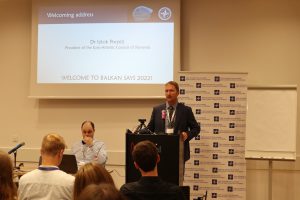
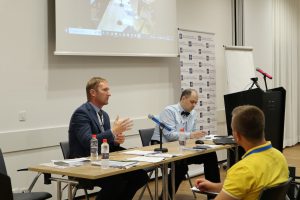
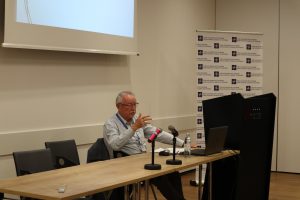
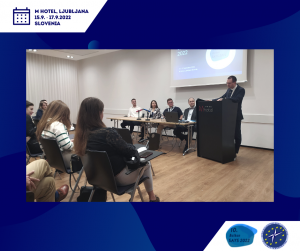
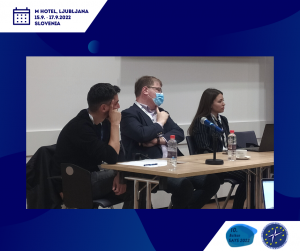
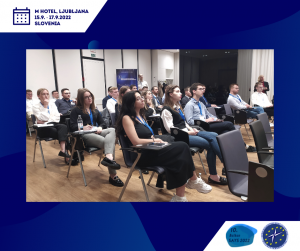
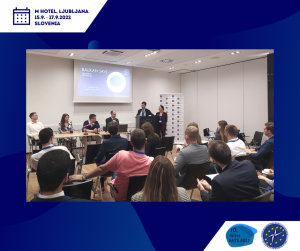
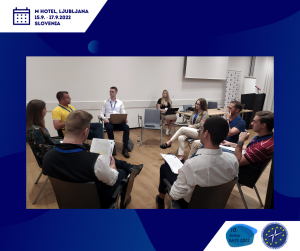
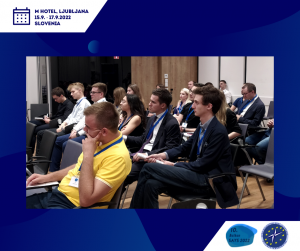
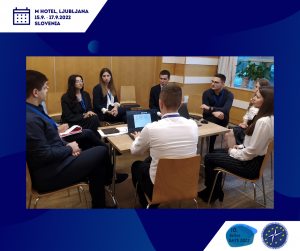
Balkan SAYS 2021
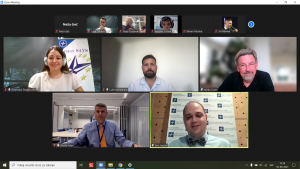
The Youth Section of the Euro-Atlantic Council of Slovenia organized the 9th edition of the Balkan SAYS – Security Architecture Youth Seminar on 15 and 16 September 2021. Due to the ongoing pandemic, the seminar was held online via Zoom and welcomed participants from 22 countries.
The 2021 seminar focused on Mediterranean security, contemporary security challenges in the Balkans, the Slovenian Presidency of the Council of the EU, and the future of NATO.
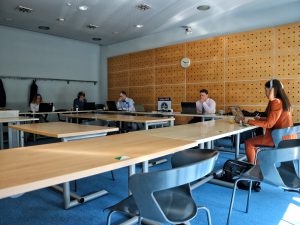
On the first day, experts from several countries discussed the EU–Turkey relationship, new waves of mass migration, tensions between Greece and Turkey, and presented natural disasters and other emergencies from a regional crisis management perspective. The second day addressed the Slovenian EU Council Presidency, cybersecurity, EU enlargement, and NATO’s 2030 agenda, including discussions on the alliance’s future relevance and resilience.
Balkan SAYS 2020
On 16 September 2020, the 8th annual edition of Balkan SAYS – Security Architecture Youth Seminar was organized by the Youth Section of the Euro-Atlantic Council of Slovenia, with the support of the Faculty of Social Sciences, University of Ljubljana. The seminar was held in a hybrid format, bringing together over 50 participants from 21 countries.
The main topics addressed during the seminar included:
-
- China and the Western Balkans – How and why is China influencing the Western Balkans?
- Bosnia and Herzegovina – 25 years after Dayton
- Crises on the EU periphery and the future of the Common Foreign and Security Policy (CFSP)
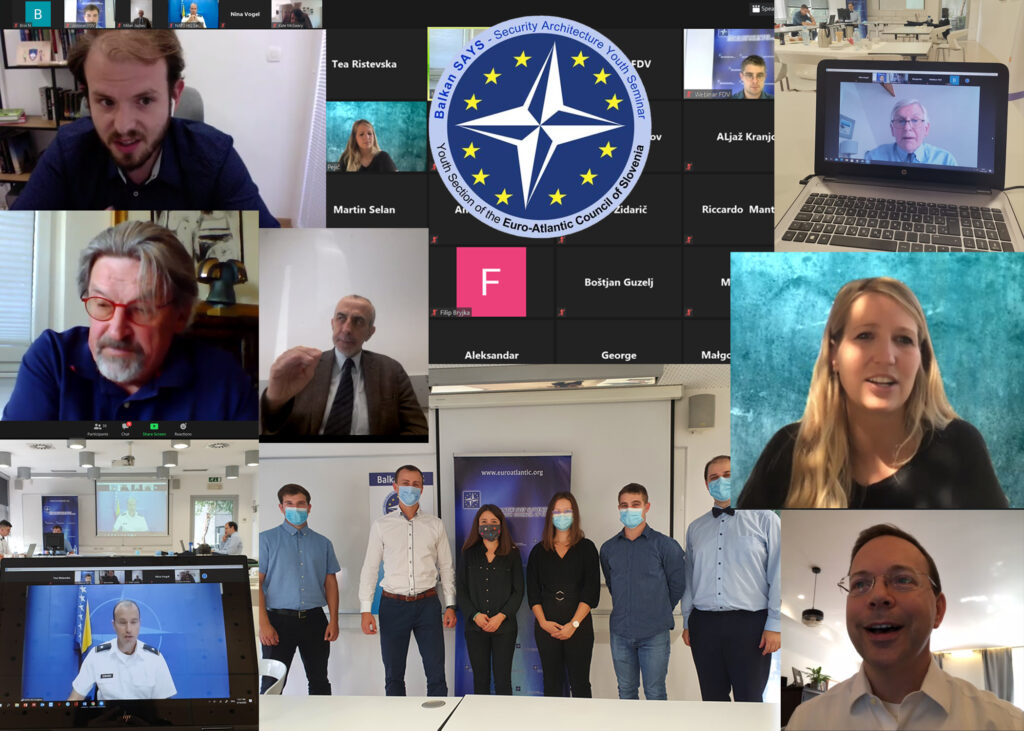
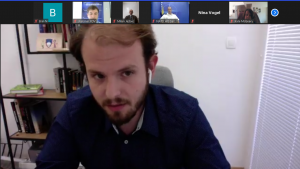
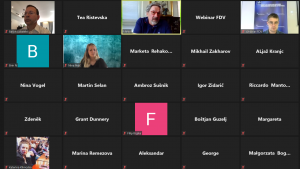
Balkan SAYS 2019
In October 2019, the Balkan SAYS – Security Architecture Youth Seminar hosted 50 participants and expert speakers from 11 different countries. The seminar gathered a diverse professional audience, ranging from senior students to young professionals working across the private sector, governmental institutions, and the military. While the primary focus remained on engaging young professionals from the Western Balkans, the event successfully attracted a broader audience from across the Euro-Atlantic region.
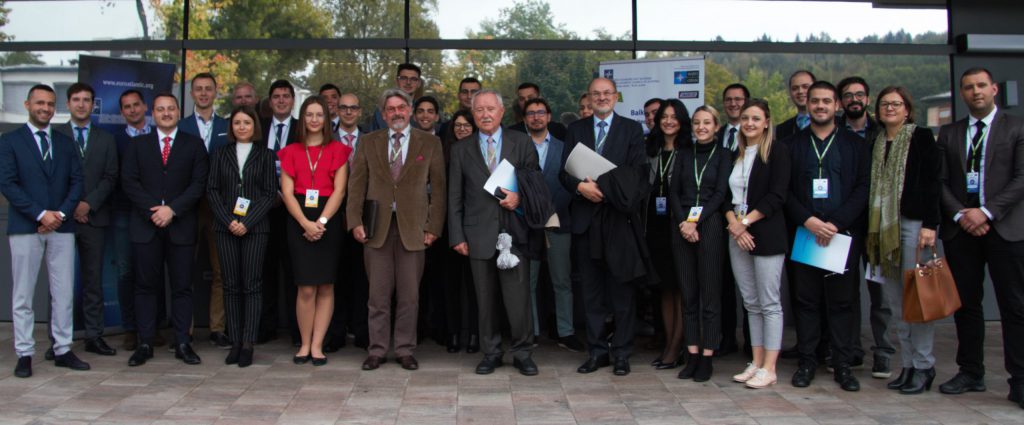
The seminar’s concept is designed to combine expert-led discussions in the form of roundtables with interactive, participant-driven sessions through workshops. This format provides both structured insight and space for creativity and peer exchange.
The main topics addressed in 2019 included:
-
- Euro-Atlantic integration of the Western Balkans – how full and how soon?
- Women and security in the Western Balkans
- Youth and environmental security
- Legal and illegal migration through and from the Western Balkans
These themes were explored through the contributions of experts from academia, representatives of the Slovenian government, international partners, and experienced correspondents.
